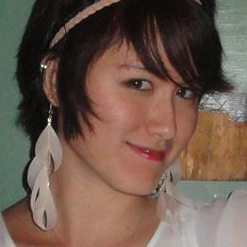
I have always been a firm believer in the idea that God guides our footsteps, and that it is not by our effort alone that we come upon the opportunities that we do.
As we trudge along this uncertain path of life, it can be easy to dismiss the significance of the proverbial signs that direct us down one road or another, the chance encounters that often inform our next actions, or the catalytic experiences and turning points that spark particular decisions or epiphanies. It is when we closely examine these moments that we see God’s intentions: that our wonderfully chaotic, individual journeys are all an integral process in realizing our Greatness as His children.
My moment came two and a half years ago, when I received my invitation to serve in Swaziland, Africa in December of 2012. After many months of anxious waiting, I was thrilled to finally start my tour with the United States Peace Corps. Although I had no say in which country I was assigned, I maintained an open heart, knowing that God would send me where I could be of the greatest use to its citizens.
Swaziland, an enclave country with a population of less than 2 million, is home to some of the world’s warmest and friendliest people. You could not walk down the street without seeing everyone greeting one another with genuine smiles and loud laughs. It was a place where, in the midst of a dark battle with the HIV epidemic, widespread economic insecurity, and minimal social infrastructure, people remained optimistic and looked to God to watch over them. These were people who refused to let challenging life circumstances overwhelm them or discourage them. “What is there to do, but keep living?” they would say.
 As a Peace Corps volunteer, I saw these desperate situations every day. Having been assigned to a rural community facing constant bouts of drought and malnutrition, widespread unemployment and poverty, limited access to water and energy, abysmally ill-supplied public schools, high incidence rates of HIV, tuberculosis, and diabetes, among other issues, I knew I would have my hands full. These challenges seemed insurmountable, and would be difficult for an army of aid workers to address, let alone one volunteer.
As a Peace Corps volunteer, I saw these desperate situations every day. Having been assigned to a rural community facing constant bouts of drought and malnutrition, widespread unemployment and poverty, limited access to water and energy, abysmally ill-supplied public schools, high incidence rates of HIV, tuberculosis, and diabetes, among other issues, I knew I would have my hands full. These challenges seemed insurmountable, and would be difficult for an army of aid workers to address, let alone one volunteer.
My intention, however, was not to try to fix everything, for that would be idealistic, patronizing, and highly unrealistic. I wanted to introduce a different way of looking at these social issues and find the people within the community who were excited to be change agents. I sought the people who cared deeply about its community and its country; the people who would work tirelessly beside me to make things happen.
Soon enough, I found these burning hearts, in the charismatic pastor who worked with me to set up the first preschool in the community and achieve a great victory for early childhood education; in the high school deputy head-teacher who wished to give educational tools and resources to the neighborhood care points for young children; in the hard-working health worker who proposed a community gardening project to address food insecurity; in the teachers who took on the life skills and HIV/AIDS prevention education programs I had introduced to the schools; in the teachers and students who helped label and catalogue the books at the new libraries we established; in the English teacher who regularly asked for my input to help her teach English classes more effectively; and in the high school teacher who had a strong passion for disseminating character development education to combat teen delinquency and sexual promiscuity; and in the Swazi soul musician who collaborated with me to professionally produce a song for a girls’ empowerment national campaign.
Without these incredible Swazis, individuals who cared so deeply for their people, sustainability of these projects would never have been possible. Never could all of these things been accomplished on my own—I was blessed to be able to work with such colleagues.
 Outside of the realm of work, my host family and “adoptive” families were my rock. They were the people who made me temporarily forget that I was thousands of miles away from my own family back home, and who supported me, both logistically and emotionally throughout my two years. My training host family, with whom I shared three wonderful months before being assigned my permanent village, christened me “Nothando,” meaning “of love.” I took this to not only mean that I should do and say everything with a heart of love, but that love would always surround me and carry me. Indeed it did.
Outside of the realm of work, my host family and “adoptive” families were my rock. They were the people who made me temporarily forget that I was thousands of miles away from my own family back home, and who supported me, both logistically and emotionally throughout my two years. My training host family, with whom I shared three wonderful months before being assigned my permanent village, christened me “Nothando,” meaning “of love.” I took this to not only mean that I should do and say everything with a heart of love, but that love would always surround me and carry me. Indeed it did.
The Magagula family, a family of 11, loved me like a daughter, a sister, a friend. I would sit outside for hours after work with my host parents, chatting away about the day, discussing politics, religion, the economy and health issues. My siblings would come to my hut to help me with my chores, listen to me play guitar, tutor me in the local language, kill a giant spider or snake, or any number of other things. The Magagulas were unfailingly joyful, upbeat, and brave, despite several tragic losses and circumstances in the community and at home. They inspired me to be the best version of myself, and for that, I am grateful.
Two families who are part of FFWPU in Swaziland, the Noumonvis and Ngwenyas, were also extremely welcoming and loving, and were there to experience it all with me. They celebrated with me when I had my commitment ceremony with my fiancé, Godis Accra from Guyana, and to support me when my fiancé lost his father. All of these people were, and always will be, family.
God knows what we need, and where we can grow the most. From the very beginning, when a new acquaintance convinced me to apply for Peace Corps, Heavenly Father was already working His magic. Swaziland was destined to become my second home, and become the foundation on which I would build my future. While in Peace Corps, I would become engaged to a wonderful man, and be accepted into a Master’s program in Humanitarian Policy and Conflict Resolution at Columbia University’s School of International and Public Affairs, where I would continue my passion for international development work.
 God intended for Swaziland to be the place where I would decide, once and for all, who I was meant to be and how I could best fulfill my purpose as His daughter. That country, and its people, has left an indelible mark on my heart. From the Swazis who warmly and eagerly embraced me into their communities, to the eye-opening conversations and observations made on a daily basis, to the moments of hardship, heartbreak, joy, and pride (all of which might be felt in a single day), I am eternally grateful for every step of this journey. I am determined to continue to live each day with love in my heart, for I have so far been blessed in my life to be engulfed in the love of others.
God intended for Swaziland to be the place where I would decide, once and for all, who I was meant to be and how I could best fulfill my purpose as His daughter. That country, and its people, has left an indelible mark on my heart. From the Swazis who warmly and eagerly embraced me into their communities, to the eye-opening conversations and observations made on a daily basis, to the moments of hardship, heartbreak, joy, and pride (all of which might be felt in a single day), I am eternally grateful for every step of this journey. I am determined to continue to live each day with love in my heart, for I have so far been blessed in my life to be engulfed in the love of others.
Hyomi Carty
United States Peace Corps Youth Development Volunteer 2013-2015, Kingdom of Swaziland, Africa
Bachelor of Arts in International Relations and Peace & Justice Studies
Tufts University L.A. 2012
Read more of Hyomi’s asventures in Africa on our blog pages: http://www.nhfaithfusion.com/author/hyomi/ or on the Tumblr blog Hyomi kept during her time there.













Trackbacks/Pingbacks
[…] Also returning Peace Corps Volunteer Hyomi Carty shared her reflection of her 2 years in Africa […]